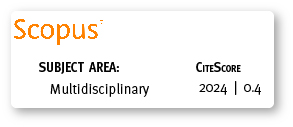¿Cómo salir de la pobreza? El capital humano frente a las capacidades humanas
DOI:
https://doi.org/10.18537/mskn.06.01.02Palabras clave:
educación, pobreza, desarrollo, capital humano, capacidadesResumen
La pobreza es un problema mundial que afecta a personas de diferentes maneras. El propósito de este artículo es explorar dos teorías principales que abordan la pobreza y la posibilidad de su superación, que son los enfoques de capital humano y de capacidades humanas. El enfoque del capital humano se centra exclusivamente en la faceta económica de la pobreza; en esta perspectiva, la pobreza se define como la falta de dinero y puede abordarse mediante el aumento de los ingresos financieros de las personas que viven en la pobreza. El enfoque de las capacidades humanas ve la pobreza como un problema multidimensional que va más allá de la economía para áreas como la salud, la educación y la libertad. Este enfoque se orienta hacia el cambio social y ayudar a las personas en situación de pobreza para descubrir y desarrollar su potencial. El autor considera que las capacidades humanas abarcan con mayor precisión el alcance de la pobreza y las personas afectadas por el mismo, aunque debido a su amplia gama ha sido difícil diseñar e implementar políticas eficaces que aborden todas las facetas de la pobreza.
Descargas
Métricas
Citas
Arnove, R.F., 1997. Neoliberal education policies in Latin America: Arguments in favor and against. In: Torres, C.A., A.P. Boulder (Eds.), Latin American Education: Comparative Perspectives. CO: Westview, pp. 79-100.
Banks, J., 2008. Diversity, group identity, and citizenship education in a global age. Educ. Res., 37(3), 129-139.
Barro, R.J., 2002. Education as a determinant of economic growth. In: Lazear, E. (Ed). Education in the Twenty-First Century. CA: Stanford, Hoover Institute.
Best, R., 2000. Introduction: Where are we going with SMSC? In: Best, R. (Ed.). Education for Spiritual, Moral, Social, and Cultural Development. London: Continuum, pp. 1-12.
Collins, J.W, N.P. O'Brien (Eds.), 2003. Greenwood Dictionary of Education. CT: Westport, Greenwood.
Geo-JaJa, M.A., S. Azaiki, 2010. Development and education challenges in the Niger Delta. In: Hui Xu, Lou, S., Xiu Lan Wan (Eds.). Studies in African Education. Hangzhou: Zhejiang University Press.
Heitor, M., H. Horta, 2014. Further democratizing Latin America: Broadening access to higher education and promoting science policies focused on the advanced training of human resources. JOTMI, 9(4), 64-82.
Lanzi, D., 2007. Capabilities, human capital and education. J. Socio Econ., 36, 424-435.
Robeyns, I., 2006. Three models of education: Rights, capabilities and human capital. Theory Res. Educ., 4(1), 69-84.
Rogers, C., 1980. A way of being. Boston, MA: Houghton Mifflin Company.
Schultz, T., 1971. Investment in human capital. New York: The Free Press, pp. 24-47.
Sen, A., 1997. Editorial: Human Capital and Human Capability. World Dev., 25(12), 1959-1961.
Sen, A., 1999. Development as freedom. New York: Anchor Books.
Smith, A., 2009. An inquiry into the nature and causes of the wealth of nations. Lawrence, KS: Digireads.com Publishing.
Tikly, L., A.M. Barrett, 2011. Social justice, capabilities and the quality of education in low income countries. Int. J. Educ. Dev., 31, 3-14.
Torney-Purta, J., J.A. Amadeo, 2004. Civic and political participation (pp. 75-90). Generalized trust and trust in institutions (pp. 91-96). Strengthening Democracy in the Americas through Civic Education: An Empirical Analysis Highlighting the Views of Students and Teachers. Washington, DC: Organization of American States.
UNDP (United Nations Development Programme) - Human Development Report Office, 1990. Human Development Reports 1990-2009. New York: Oxford University Press.
UNDP, 2010. Human Development Report 2010, 20th Anniversary Ed., The Real Wealth of Nations: Pathways to Human Development. New York: UNDP.
UNDP, 2013. Indices & Data | Human Development Index | Human Development Reports (HDR) | United Nations Development Programme (UNDP). Human Development Reports (HDR) - United Nations Development Programme (UNDP). Retrieved from http://hdr.undp.org/en/ statistics/hdi/ in October 2013.
UNESCO, 2007. Education for all. Global monitoring report 2008 - Education for all by 2015: Will We Make It? Paris and Oxford: UNESCO and Oxford University Press.
Uvin, P., 2007. From the right to development to the rights-based approach: How “human rights” entered development. Dev. Pract., 17(4), 597-606.
Walker, M., 2010. A human development and capabilities ‘prospective analysis’ of global higher education policy. J. Educ. Policy, 25(4), 485-501.
Walker, M., 2012. A capital or capabilities education narrative in a world of staggering inequalities? Int. J. Educ. Dev., 32, 384-393.
Word Bank, 2010. Extreme poverty rates continue to fall | Data. Data | The World Bank. Retrieved from http://data.worldbank.org/news/extreme-poverty- rates-continue-to-fall in October 2013.
Descargas
Publicado
Cómo citar
Número
Sección
Licencia
Copyright © Autors. Creative Commons Attribution 4.0 License para cualquier artículo enviado a partir del 6 de junio de 2017. Para los manuscritos presentados anteriormente, se utilizó la licencia CC BY 3.0.
![]()
Usted es libre de:
 |
Compartir — compartir y redistribuir el material publicado en cualquier medio o formato. |
 |
Adaptar — combinar, transformar y construir sobre el material para cualquier propósito, incluso comercialmente. |
Bajo las siguientes condiciones:
 |
Atribución — Debe otorgar el crédito correspondiente, proporcionar un enlace a la licencia e indicar si se realizaron cambios. Puede hacerlo de cualquier manera razonable, pero de ninguna manera que sugiera que el licenciador lo respalda a usted o a su uso. |
| Sin restricciones adicionales: no puede aplicar términos legales o medidas tecnológicas que restrinjan legalmente a otros a hacer cualquier cosa que permita la licencia. |
Mayor información sobre este acuerdo de autoría y licencia, transferencia de derechos o solicitudes de reproducción, pueden ser consultados en este enlace.









